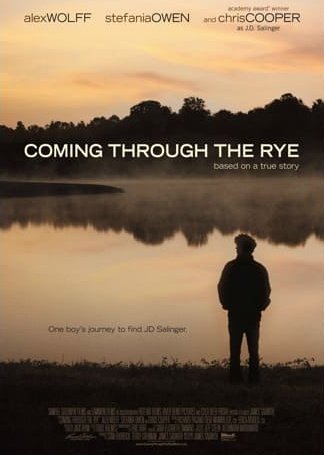Investing in independent film is not only a good way to help improve the arts and shift spare cash into something worthwhile, but you'll also get a buzz out of being a part of something really exciting. Independent movies occasionally rise to the top and oust the major movie studio productions, so how great would it be if the project you invested in manages to be one of those unpolished gems?!
If you invest in all the spin-offs such as theatrical renditions, DVDs, video-on-demand, cable, foreign markets, etc., there can be lucrative earnings. To a great extent, the film industry has a small buffer against economic woes, as recently proven by the pandemic, which catapulted streaming content.
How to Invest in Indie Films Steps
Here are some ways to get involved in indie films as an investor:
- Consider why you're doing this. There is no guaranteed ROI, and investing in actual movie production won't necessarily make you a fortune, with occasional exceptions, of course. However, there can be very good returns for investing, depending on how you choose to do your investing in indie films. Moreover, you are helping to grow an industry that is important for society and you might be getting other spin-offs for your own business as a result, such as the goodwill rubbing off onto your related company or persona. And if you invest in all the spin-offs such as theatrical renditions, DVDs, video-on-demand, cable, foreign markets, etc., there can be lucrative earnings. Another reason for investing is tax deductions and perks that can be associated with supporting the arts (dependent on where you invest).
- Consider investing in indie moves as a non correlated asset class. Films and film finance have outperformed every non correlated asset class in the world. If you look at the more than $6 billion dollars poured into motion picture finance deals in the last 3 years, the IRR across the spectrum for both studios and independents are resilient to global economic declines in other industries. When defense contractor Honeywell, New York Hedge Fund Elliot Associates, and Dune Capital invested more than a combined total of more than a billion dollars towards several different film funds, many pension funds, private banks, hedge fund managers, private equity groups, and high net worth investors and family offices started to follow suit enter the movie business.
- Diversify your portfolio. As with any good investment strategy, investing in indie films should be one string to your bow and not the whole bow. By holding a diversified portfolio, you should be able to reduce your exposure to individual asset risk.
- Be in this for the long term. Don't gamble on one film hoping to win a film festival. Look to finance 10, 20, 40, 50, 75 films instead; that way, there is more than just upside on revenues from each one but a final exit strategy after 5-7 years that can bring 300-400% returns on capital invested.
- See the silver lining in the entertainment industry in both the good times and the bad. Even when times are bad, entertainment thrives because people want to escape their economic woes in the fantasy of film. In 2020, COVID provided us with a great example of how demand for fresh and new content can immediately be in global demand during even the worst of times. To a great extent, the film industry has a small buffer against economic woes as a result of this need for continuing to be entertained. If you look at the theatrical box office receipts and DVD growth of recent films, including "Slumdog Millionaire" or "Twilight" which had zero movie stars, the ROI on these and numerous other films exceed the ROI and revenues of auto manufacturers, real estate, stocks, mutual funds, etc. This occurs basically because a well made film is not a local commodity that is just bought and sold once, but is a global phenomenon that has revenue potential from more than 50 countries and medias including theatrical, cable, TV, satellite, airline, DVD, and the huge explosion of Video-on-Demand.
- Be prepared for naysayers. While some private equity outfits may balk at the notion that Hollywood is safe, realize that retail investors as well as institutional investors are transitioning from brick and mortar investments to the film business because there are favorable taxation implications (some U.S. investors and C corporations are looking for either a strict 100% deduction of their investment under IRS Section 181 or simply being in a portfolio of non correlates investment opportunities). Overseas investors simply want a high yield non-correlated asset class that has long term appreciation such as a hybrid film slate and 100% control over U.S. theatrical distribution.
- Realize that you can do this as much as the larger investors. In the USA, smaller investors can see their investment bring an immediate return from the monetization of state tax credits as part of the equity stream, an upside in a number of films vs. investing in a single picture, possible Section 168k benefits, as well as being involved with creating jobs and stimulating the economy (every film production creates 50-100 jobs).
Back to Top of How to Invest in Indie Films
How to Invest in Indie Films Tips
- Those known to be investing their money in Hollywood: Anil Ambani, Larry Ellison Of Oracle, Paul Allen Of Microsoft, Steven Rales, Fred Smith of Federal Express, Norman Waitt, the Co-Founder of Gateway Computers, Jeff Skoll Of Ebay, Marc Turtletaub of The Money Store, Roger Marino Of EMC Corp, Sidney Kimmel Of Jones Apparel Group, Minnesota Twins owner Bill Pohlad; Real Estate Developers Tom Rosenberg and Bob Yari, and, financiers Sheikh Waleed Al Ibrahim, Michel Litvak, and Philip Anschutz are all behind the finance of a lot of films that range from box office hits to Academy Award winners.
- Institutional investors and hedge funds investing in films include Elliot Associates, Stark, Columbus Nova, Bain, Honeywell, and others.
- Non-correlated investment strategies can be used by investors to neutralize, or counterbalance, the risk that one, or more, of the investments in a traditional portfolio of stocks and bonds falls in value. In order to do this, investors typically place between 5% and 20% of their total investment portfolio into alternative investments to protect the remainder of the portfolio from downside risk.
Back to Top of How to Invest in Indie Films
Film Investor Primer - How to Invest in Movies
Original article provided by wikiHow. It has since been edited and updated. All content on wikiHow can be shared under a Creative Commons license.
FilmProposals - 2025 Financing Toolkits & Bundles
DIY Toolkits, Legal & Finance Service Bundles
See All Financing Toolkits, Financing Bundles & Film Legal Packs
Gold Toolkit
DIY Templates- Financing Manual
- Financial Projections Template
- Business Plan Templates (Narrative & Documentary)
- Investor Agreement Outline
- Film Budget Template
- Indie Film Pitch Deck
- Custom Indie Film Database
- BONUSES (MPA Market Stats, Dealmaking, Investor Tips, ++ )
- Regular Price $303, Save $124
Gold Toolkit + Financials Bundle
Most Popular- Full Gold Toolkit
- + Professional Sales Projections & Investor ROI (10 Films)
- Regular Price $802, Save $103
Platinum Bundle
NEWEST!- Full Gold Toolkit
- + Professional Sales Projections & Investor ROI -10 Films (Reg $499)
- + Film PPM Investor Agreement (Reg $499)
- + Filmmaker Legal Pack (Reg $129)
- Regular Price $1430, Save $231
While our FilmProposals Bundles & Toolkits will save you hundreds of hours with prewritten text and templates and speed up your learning curve by showing you how to complete complicated financial projections, there is still a lot of information to process. We designed this FREE Film Business Plan Course to be sent once per week to break the process of writing your business plan into manageable pieces, and to keep you accountable and focused.
FilmProposals Tools and Templates
- Film Financing Bundles
- Film Financial Projections Template
- Film Business Plan Template
- Documentary Business Plan Template
- Film Financing and Investor Manual
- Film Budget Template
- Indie Film Pitch Deck
- Film Investor Agreement Outline
- Film Investor Tip Sheet
- Filmmaker Legal Pack
- Indie Film Database
- FREE Business Plan E-Course






